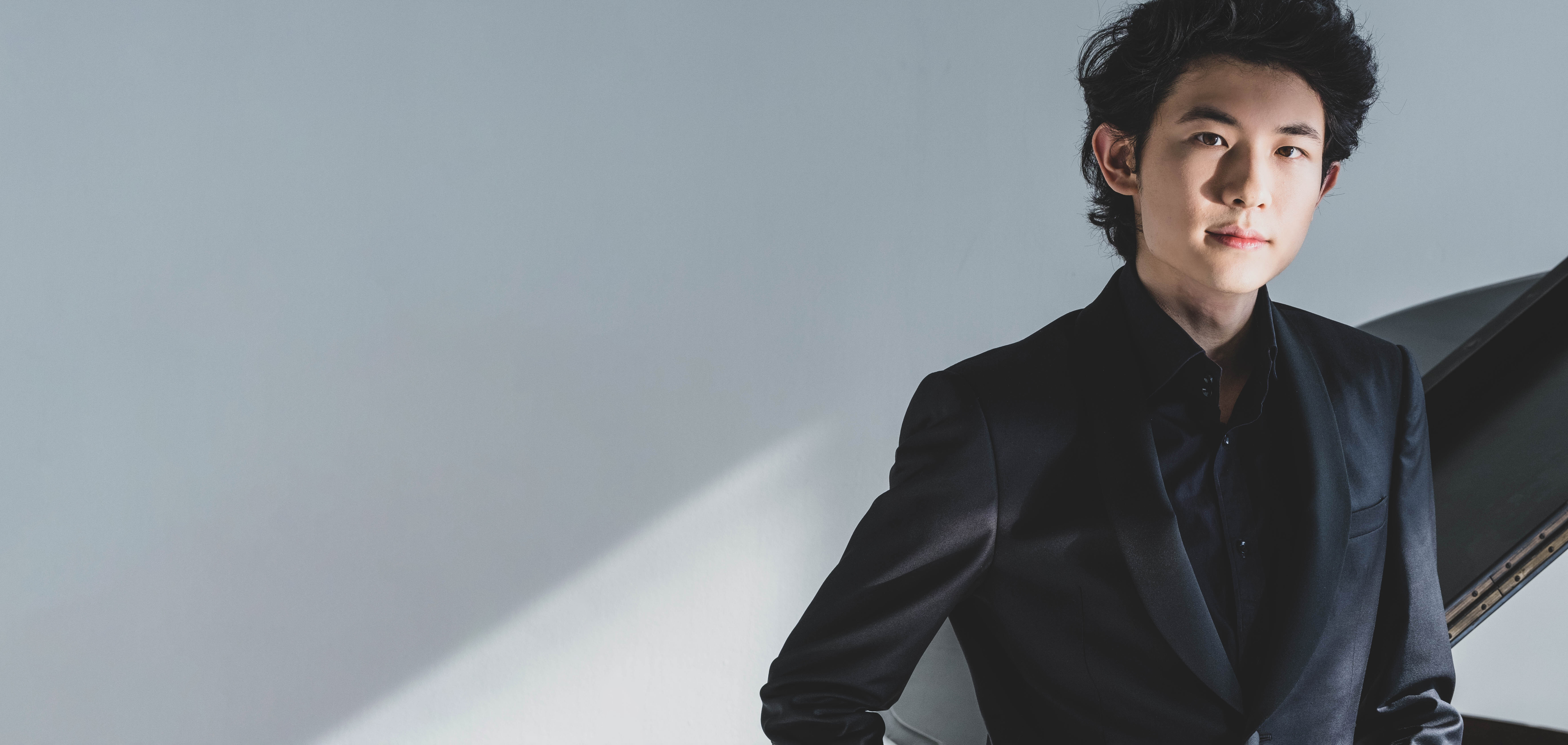May 1, 2025
Tony Siqi Yun makes his debut at the San Francisco Symphony with a Shenson Spotlight Series recital on May 21.
Canadian-born pianist Tony Siqi Yun was gold medalist at the First China International Music Competition in 2019 and was awarded the Rheingau Music Festival’s 2023 Lotto-Förderpreis. He is a recipient of the Jerome L. Greene Fellowship at the Juilliard School where he studied with Yoheved Kaplinsky and Matti Raekallio.
Tell us a little about what you’re playing in your Shenson Spotlight Series recital.
I will begin the program with a Brahms original solo work that is not exactly played often. It is Brahms’s own transcription of the second movement of his Sextet No. 1, Opus 18. It begins with a deeply expressive theme rich in warmth and lyricism, and the work expands with long singing lines that carry a sense of nostalgia and hints of a love song. This tranquility is then shattered by Beethoven’s Appassionata Sonata, famous for its daring and powerful writing for the piano, erupting in a whirlwind of fury and defiance. And then, some Italian music: Berceuse from Elegies by Ferruccio Busoni, a work that is equally haunting and introspective. Written in memory of his mother, the work creates a dreamlike, almost otherworldly atmosphere—an intimate farewell that lingers in the air. Finally, Schumann’s Symphonic Études. The word symphonic in the title gives away the sheer power and grandeur of the work—it is more than just a set of études; it unfolds like a full orchestral drama for the piano. From the darkness of the theme to the struggles of the variations that push the music into a submission to fate and defeat, to the newfound spark of hope that ends the work with a splendidly triumphant conclusion, the Symphonic Études are a testament to the triumph of the human spirit. They will bring the program to a resounding and exhilarating close.

It depends. I try not to get too worked up during the day so I save enough energy for all my inspiration to come to me in the evening. Usually, I would practice around 4-5 hours on my concert days and I make sure to take a little nap before the concert.
What inspired you to pursue a career in classical music?
I think it’s the desire to share and to inspire. We come to know ourselves more deeply when our emotions are fully explored. That kind of connection doesn’t come easily—and I believe music is one of the most powerful ways to reach it. Of course, I didn’t think this way when I first sat at the piano at four years old. But in my teens, I began to feel the magic of music—its ability to connect us to something greater, to each other, and to ourselves. That feeling is still what drives me to keep sharing music today.
What are some of your interests outside of music and how do they influence your creativity and artistic expression?
Every part of life feeds my creativity. I love exploring the beautiful cities and towns my concerts take me to, spending time with family and friends, and whenever I can, driving scenic roads alone and simply living in the present and taking it all in.
